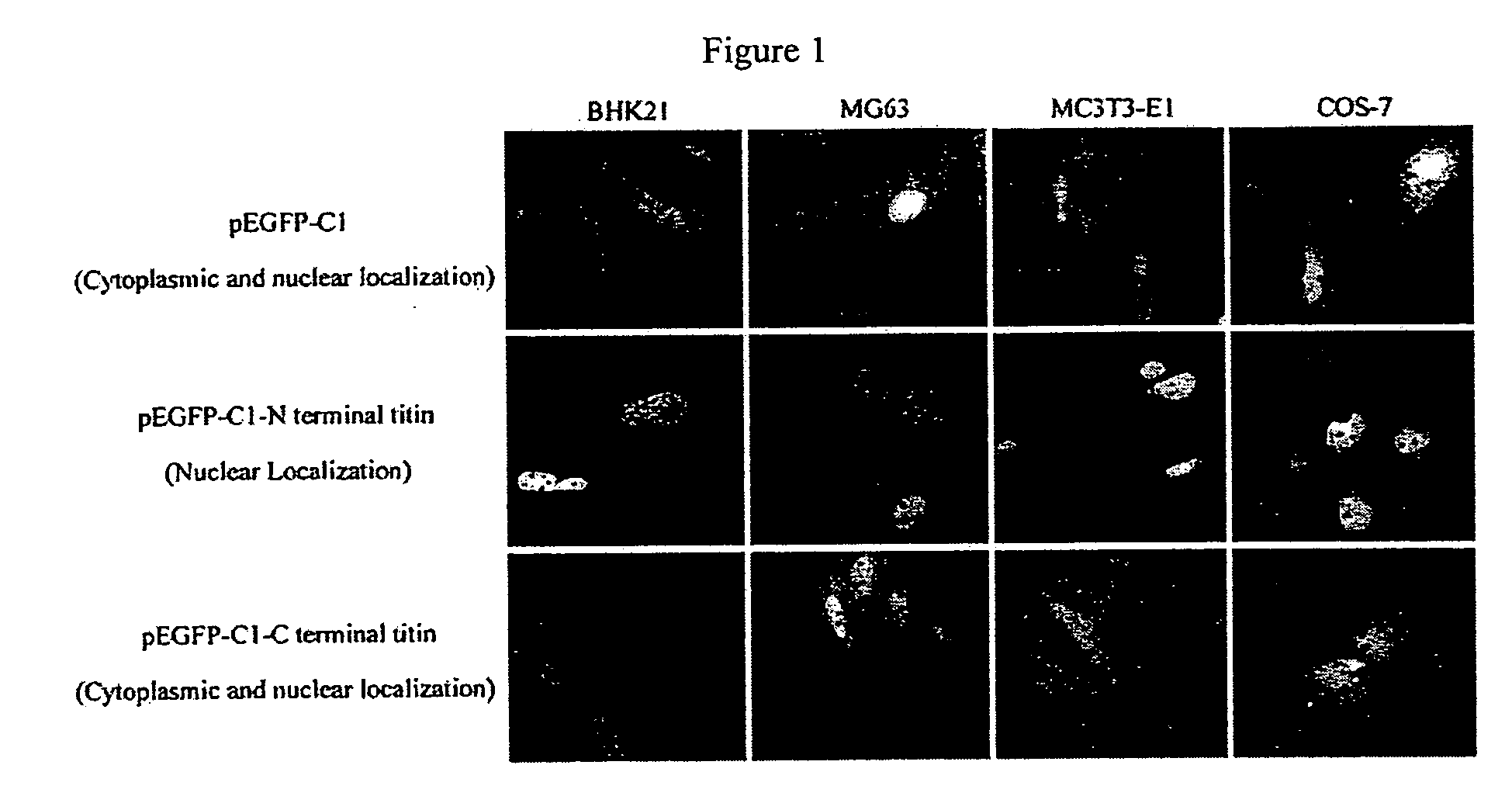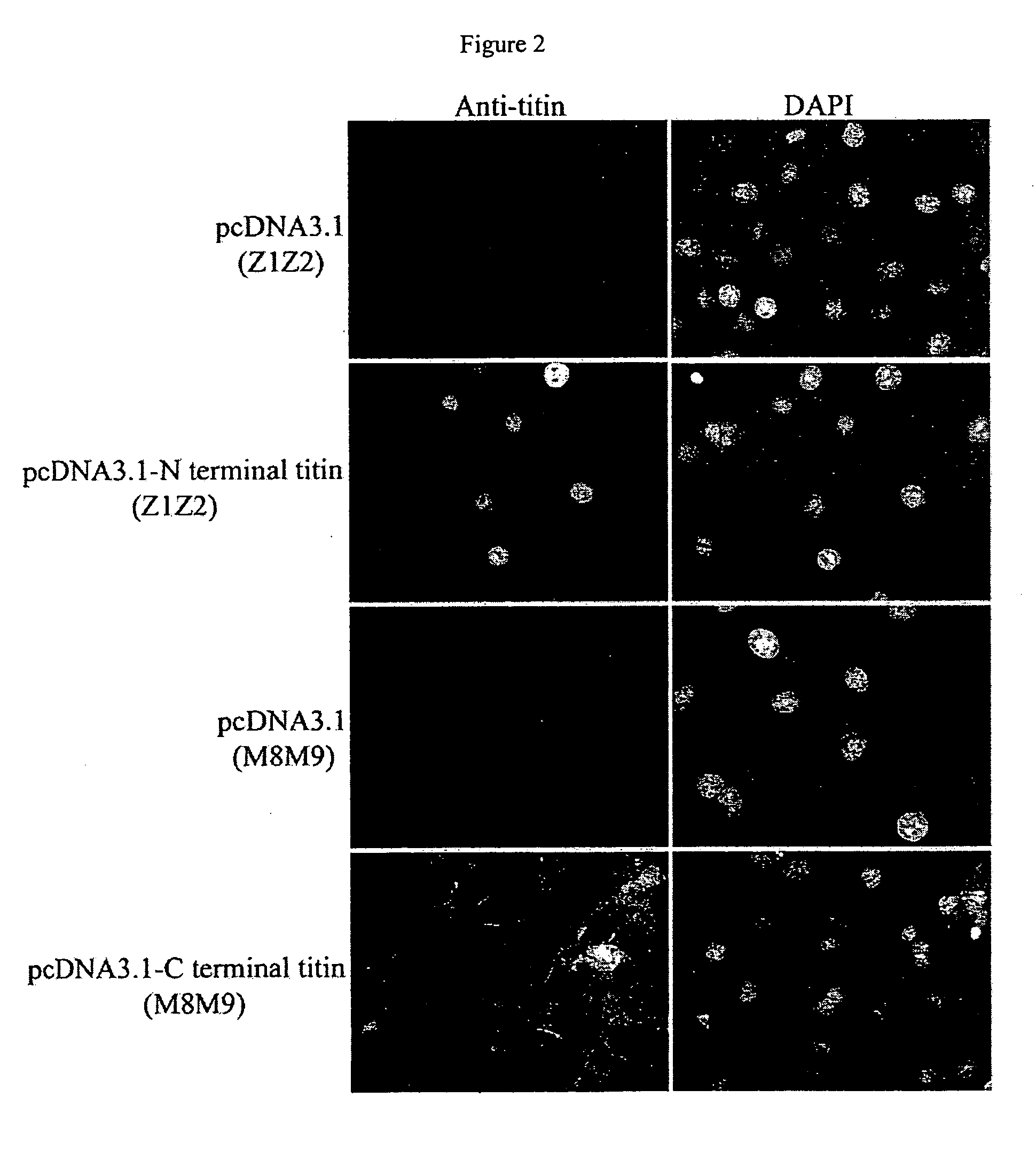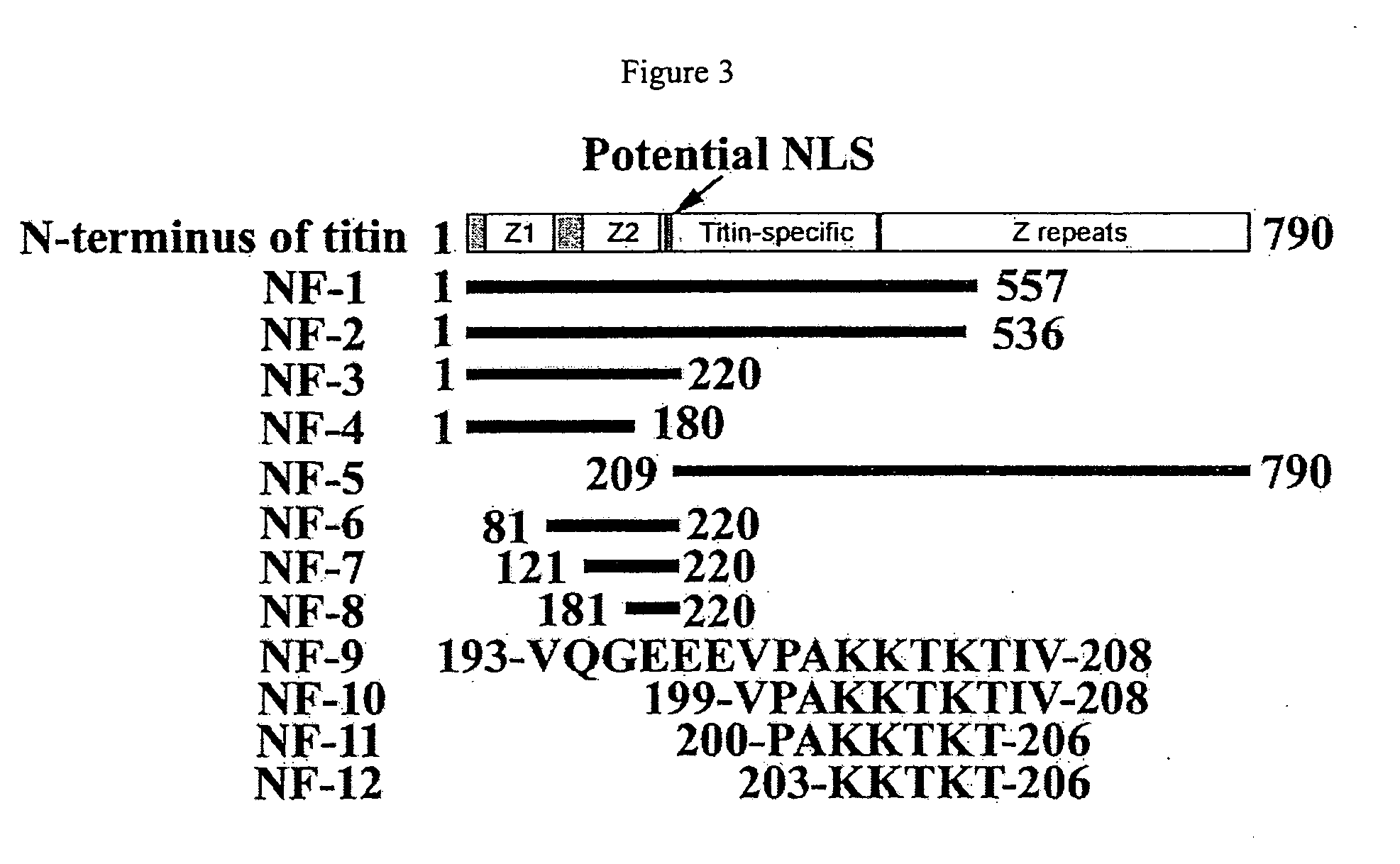Nuclear targeting sequence
a technology of nuclear targeting sequences and localization signals, applied in the field of new nuclear localization signal sequences and nuclear export signal sequences, can solve the problems of not representing a functional signal, difficult to predict their presence in a given protein,
- Summary
- Abstract
- Description
- Claims
- Application Information
AI Technical Summary
Problems solved by technology
Method used
Image
Examples
example
Introduction
[0049] Titin is a giant protein expressed in cardiac, skeletal and smooth muscle tissues which is responsible for muscle elasticity and for providing a scaffold for assembly of sarcomeric proteins. The full length sequence of the titin gene contains 363 exons which encode a 4,200 kDa protein having 38,138 amino acid residues. The titin protein mainly is composed of immunoglobulin (Ig), fibronectin III (Fn-III) domains and PEVK repeats (a ˜28 residue, P, E, V, K-enriched motif), which contribute to the elasticity of the titin protein. Different combinations of these domains determine the stiffness of titin and thus the stiffness of muscle tissue. Additional sarcomeric protein binding sites have been found on titin, confirming the key role that titin plays in the assembly of sarcomere units (Gautel M. et al., J. Cell Science, 109:2747-2754, 1996).
[0050] Monoclonal antibodies specific to titin have shown that single titin molecules extend across the entire distance from t...
PUM
| Property | Measurement | Unit |
|---|---|---|
| distance | aaaaa | aaaaa |
| hydrophobic | aaaaa | aaaaa |
| size | aaaaa | aaaaa |
Abstract
Description
Claims
Application Information
 Login to View More
Login to View More - R&D
- Intellectual Property
- Life Sciences
- Materials
- Tech Scout
- Unparalleled Data Quality
- Higher Quality Content
- 60% Fewer Hallucinations
Browse by: Latest US Patents, China's latest patents, Technical Efficacy Thesaurus, Application Domain, Technology Topic, Popular Technical Reports.
© 2025 PatSnap. All rights reserved.Legal|Privacy policy|Modern Slavery Act Transparency Statement|Sitemap|About US| Contact US: help@patsnap.com



